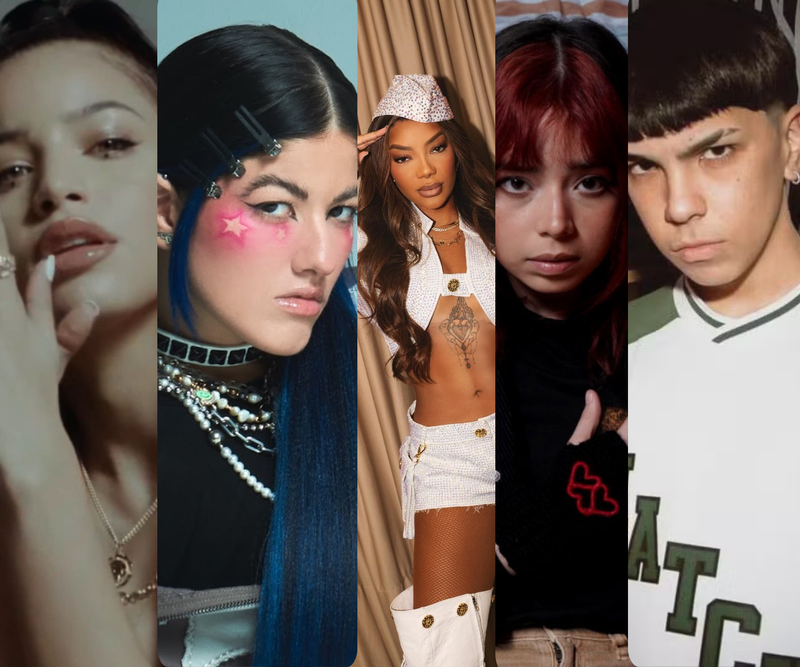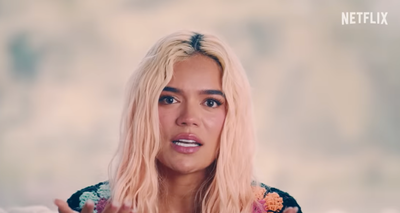On November 10th, the 2024 Grammy nominations were announced, which showcased a shocking lack of Latin representation among the nominees. Even though Mexican producer and composer Edgar Barrera was shortlisted as songwriter of the year, other Latinxs in the main categories are nowhere to be found. There were no Latin American artists in the four main categories ―Best album, recording and song of the year, as well as best new artist! As usual, relegated to their “rightful” place: the Latin Grammys.
This is a surprising turn of events if we consider how the Música Urbana genre is taking the world by storm. According to a study conducted by the University of Nebrija and the Nebrija Foundation, singers like Shakira, Daddy Yankee, Bad Bunny, and Karol G have spread the Spanish language to every corner of the world. In fact, the urban Latin music genre currently accounts for between a quarter and a fifth of the songs on the charts of streaming music platforms.
A possible reason behind this is that almost 490 million people see Spanish as their native language, occupying the second place after Mandarin. Spanish predominance is also visible in countries like the United States, in which the Latinx community is the largest ethnic minority group, with more than 62 million Americans. However, that doesn’t exempt Latinos from suffering discrimination because of their language.
A language boom of this magnitude can be pinned down to a growing tendency regarding a growing glocalization in today’s market. Glocalization is a mixture of “globalization” and “localization”. This concept, coined by researcher Will Page, consists of the worldwide curated production of culture adjusted to accommodate local consumers. For example, every song featured in Spotify’s Top 50 Mexico were in Spanish and not written by foreign artists. In fact, many Latin artists write music by mixing English and Spanish (this is also known as Spanglish), a strategy which enables them to reach a wider audience of listeners and rise to the top of the streaming ranking without neglecting their local fandom.
This worldwide phenomenon is boosted even more by Latin music. This genre provides a contact zone between cultures, a social space where ethnicities gather, clash and fight with each other, often within contexts of highly asymmetrical power relations. For instance, lots of Latin songs are marked by ethnic and class prejudices, similar to what happens in African American music: Reguetón or Reggaeton and Trap lyrics sometimes narrate violent scenarios or misogynistic words, even when women are behind the songs.
Latin music’s power is so influential that millions of listeners around the globe see where those artists are coming from and identify with their lyrics.
Upcoming Latinx Artists for 2024
Every Latinx or Latin music lover has enjoyed Bad Bunny’s lyrics or has danced to Karol G’s songs. But what about other booming local artists? Here’s a list of some new Latinx sensations to watch out for during the year to come:
1. Emilia
Emilia Mernes is a 27-year-old Argentine singer, songwriter, model and actress. She began her career as the lead singer of Rombai, an Uruguayan cumbia pop band (this genre is also known as cachengue). She then saw fit to spread her wings and start her solo career in 2019 with her single “Recalienta”, but it was her debut album ¿Tú crees en mí? that catapulted to fame. Her latest album .mp3 features rhymes in both Spanish and English, and pays homage to 2000 nostalgia with both Emilia’s melodies and her wardrobe goals. Known for her non-stop hard work and determination, her 10 shows for this January were sold out in less than ten hours, an event that broke the sales record.
2. Paopao
Straight out of Puerto Rico, Paopao pays homage to the birthplace of Reggaeton with innovative lyrics. What sets her apart from other Latin artists of the genre is that she doesn’t come from unprivileged neighborhoods. At first, she believed she wouldn’t be able to make Reggaeton because of her different upbringing, but a change of mentality allowed her to release her first solo EP Diamantes y Espinas. Determined to learn everything she could about music, she moved to Florida in the United States to study Media Writing and Production, and she now holds a Master’s Degree in Music Industry.
3. Ludmilla
Did you think Latin music was all in Spanish? Well you thought wrong: meet Ludmilla, a Brazilian goddess from Rio de Janeiro. With a voice as smooth as silk, she won her audience’s hearts by blending genres like baile funk, Pop, Trap, and R&B. This year she entered the international scene when she received a Latin Grammy for her latest album Numanice #2. Her talent and determination helped become the first Afro-Latina artist to reach 1 billion streams on Spotify. Such a force to be reckoned with!
Fun fact: Ludmilla and Emilia joined forces during their hit song “No_Se_Ve.mp3”.
4. Bratty
Bratty is an Indie Pop artist on the rise. Born in Culiacán, Sinaloa, this 22-year-old singer/songwriter entered the music scene in 2018, with her debut EP Todo Está Cambiando. Determined to make it in the music business, she also released her first album Delusión in 2019, an effort that paid off when she made her first appearance at Coachella in 2023. She has recently released Tres, her third and latest album.
5. Milo J
Last but not least, Milo J blew the world away at just 17 years of age. But don’t let his young spirit fool you. His deep voice expresses a maturity seldom found in today’s music industry. Born and raised in an underprivileged neighborhood in Buenos Aires, Milo weaves words in his sleep and shares his life story in songs like “Milagrosa” and “Dispara” (a collaboration with Argentinian powerhouse Nicki Nicole). His fame exploded after being featured in Bizarrap’s music studio, a session that has more than 83 million views on Youtube and more than 104 million streams on Spotify. From that moment on, Milo is heard by more than 18 million people each month! He recently released a new album, called 111.
Fun fact: like all Argentinians, Milo is a yerba mate addict and he has even drank this Latin beverage during his live performances.
Did you already know these Latinx artists? If you know other upcoming musicians we haven’t mentioned, feel free to leave us a comment!






